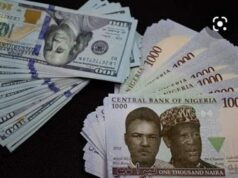The Federal Government says it has identified the creative industry, tourism, and culture as sectors critical to the diversification of the country’s economy away from oil.
The Minister of Information and Culture, Lai Mohammed, made this known while speaking at the opening of the United Nations World Tourism Organisation (UNWTO) Global Conference held at the National Theatre Complex, Iganmu, Lagos State, on Tuesday.
Mohammed said the Federal Government regarded the three sectors (creative industry, tourism, and culture) as not just the new oil, but also the new gold, adding that the realisation was the reason the government paid much attention to the sectors.
The minister stated that the tourism and the creative industry, due to their economic viability, were in the global spotlight and have their place at the forefront of national and international development agenda, saying the creative arts has been estimated to generate annual revenue of over $2 trillion and accounts for over 50 million jobs worldwide.
Quoting a recent IMF report, Mohammed said the entertainment and creative industry in Nigeria, which in the last decade have experienced massive growth and international recognition, account for 1.45% of Nigeria’s GDP.
“In 2021, the number of annual film production stood at 2,500 with a projection of $22 million. The revenue from music is estimated at $73 million (with annual growth rate of 13.4%).
“In a similar vein, fashion contributes over 6.1% to global Gross Domestic Product (GDP), averaging between 2%and 7% of national GDP around the world. These sectors contribute to the growth, resilience, and recovery of the economy of societies and well-being of individuals.
READ ALSO: Buhari orders probe into Imo monarch’s murder
“Prior to Covid-19, travel, and tourism had become one of the most important sectors in the world economy, accounting for 10 percent GDP and more than 320 million jobs worldwide. However, the global pandemic led to the loss of millions of jobs, as it affected micro, small, and medium-sized enterprises. The good news is that the recovery of the travel and tourism sector is well underway,” he said.
Mohammed stated that one of key goals of this conference was to bring to the fore sustainable solutions and innovative policies for the development and enhancement of the symbiotic potentials of tourism, culture, and the creative industry.
The minister said the meeting provides an excellent opportunity to discuss ways and means to promote intra-Africa travels and tourism, adding that the conference will equally provide the stakeholders the opportunity to discuss linkages and opportunities between tourism, cultural and creative industry, and engage in business-focused discussions, with a view to initiating private sector-led growth and development of tourism and the creative Industry.
“It is also a platform to dialogue and engage with key industry personnel on the business of the creative sector, while addressing key issues affecting the sectors such as investment, capacity-building gaps, product development, marketing and digitalization, intellectual property rights, piracy, education, poverty, power supply, security, access to finance, distribution infrastructure, technical competence, film content, multiple taxation, and multi-level regulation, among others.
“On our part, we have long identified the creative industry, tourism, and culture as sectors critical to the diversification of our nation’s economy away from oil. We regard the creative industry as the new oil. But now, when added to tourism and culture, we see these three sectors as not just the new oil, but also the new gold!
“This realisation explains why we have paid much attention to the sectors. We have given much visibility to our cultural sector, and one of the fallouts of this is our successful campaign to repatriate our much-coveted artefacts, which were looted and taken to different parts of the world.
“Hundreds of these timeless works of art are currently being repatriated to Nigeria, in a reflection of our successful campaign. We have brought our creative industry to the front burner of our economy, highlighting the contributions of music, film, fashion, gastronomy, etc to the national economy.
READ ALSO: Jeff Bezos: I’ll give away majority of my $124bn fortune
“Of course, culture and creative industry are drivers of tourism. We have been resourceful in driving our Digital Switch Over (DSO) in broadcasting, knowing how critical this is to the creative industry. And we have breathed life into the hub of our arts and entertainment, the National Theatre, which is getting its first makeover in over 40 years, thanks to a collaboration between the Federal Government and the private sector, specifically the Bankers’ Committee, which has injected $100 million into the renovation efforts.
“The outcome is what you see today – aniconic edifice reclaiming its lost glory. And this is just the first phase. When completed, there will be four new hubs for music, film, fashion, and IT – and a new dawn for cultural tourism, arts, and entertainment.
“We need a better understanding of the economic impact of these inter-linked sectors, as well as of the impact on GDP and on jobs, because very often people do not realize that these sectors can be more important than many heavy industries, and they would never guess that those jobs were created by the cultural sector.
“So, we need to put the numbers on the table, with a view to having an international roadmap to better support tourism and the creative industry, and national strategies for the countries that are engaged in this area,” Mohammed stated.
- EFCC chair: How Yahaya Bello declined invitation for interrogation - April 23, 2024
- EFCC chairman: I’ll resign if Yahaya Bello is not prosecuted - April 23, 2024
- EFCC: Yahaya Bello withdrew $720,000 from Kogi account to pay child’s school fee - April 23, 2024










